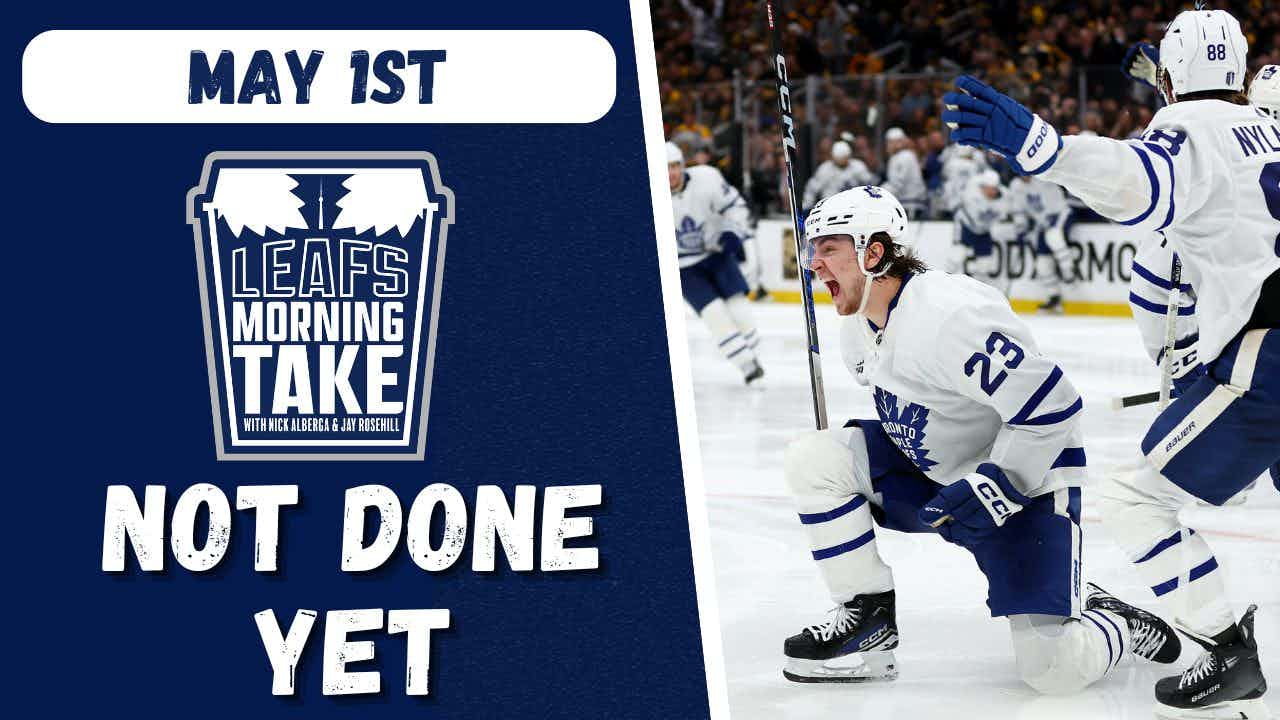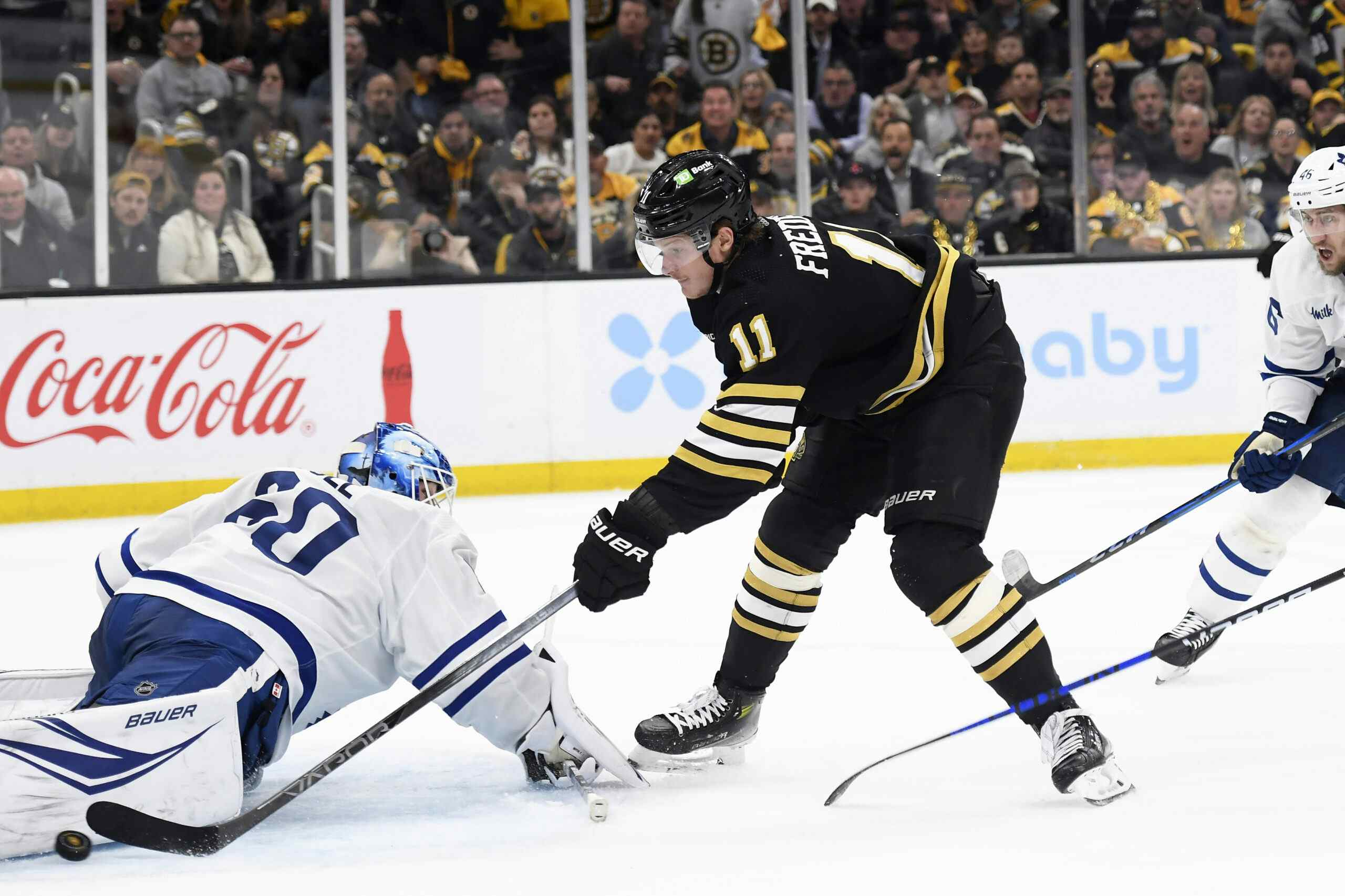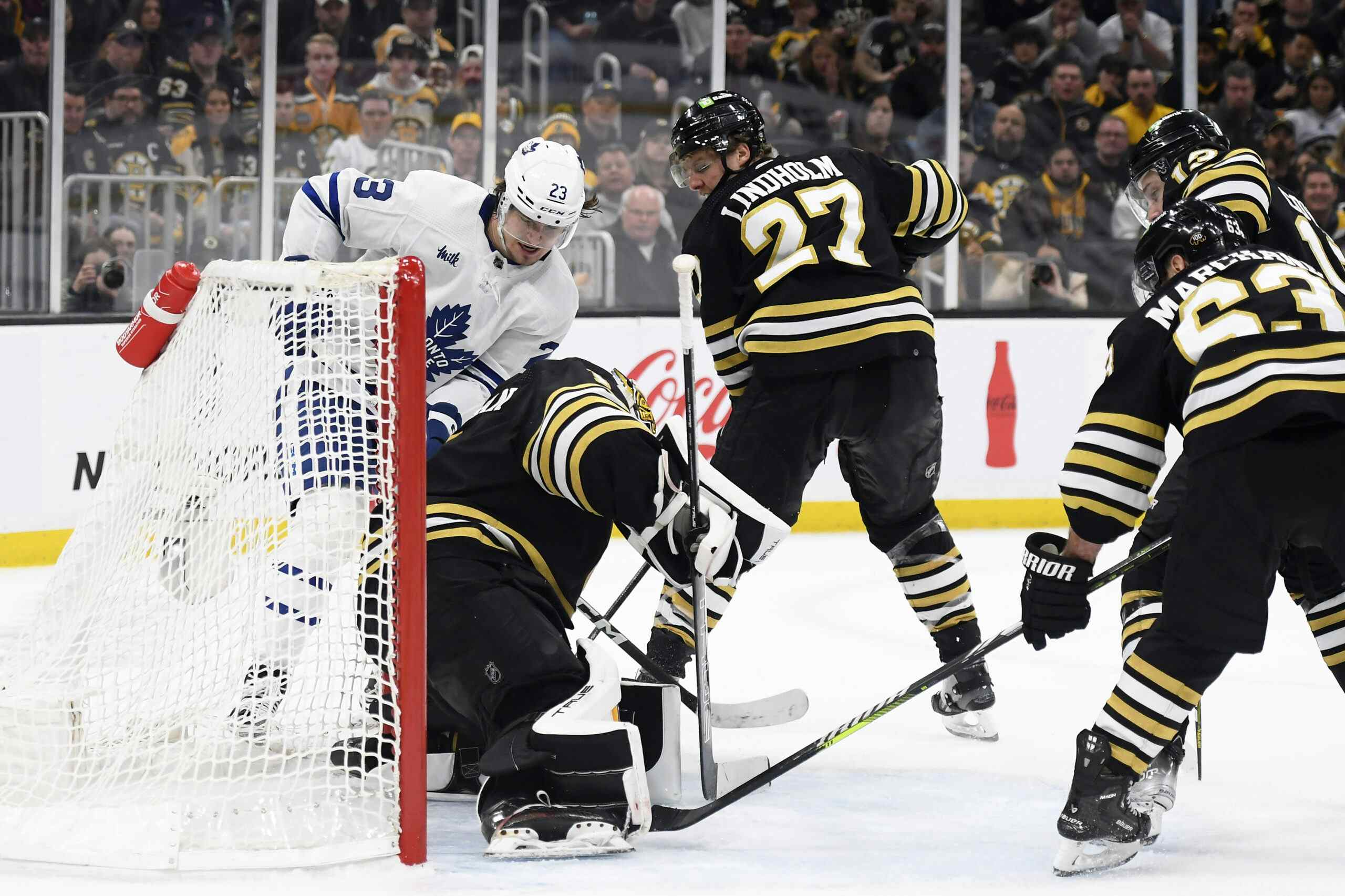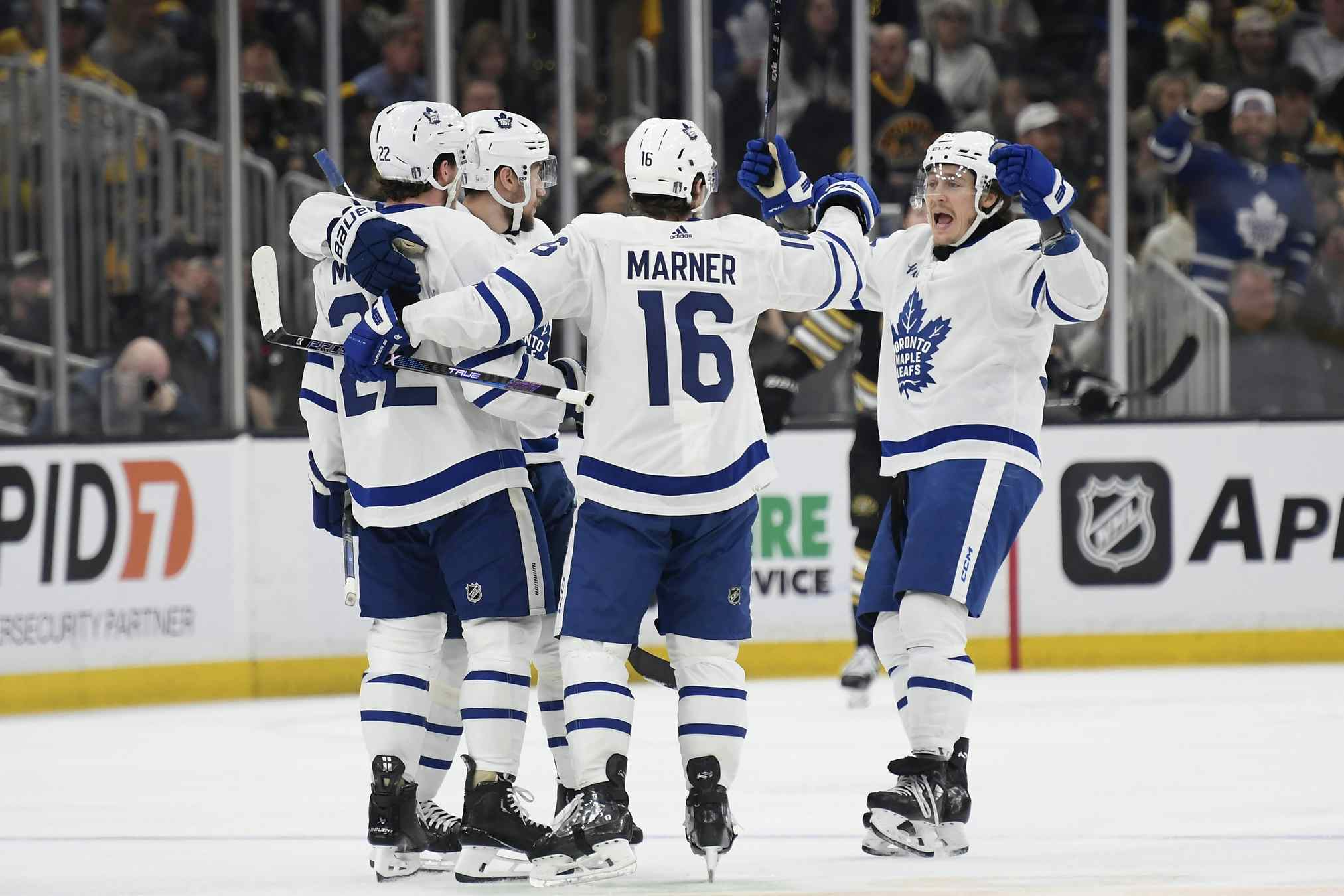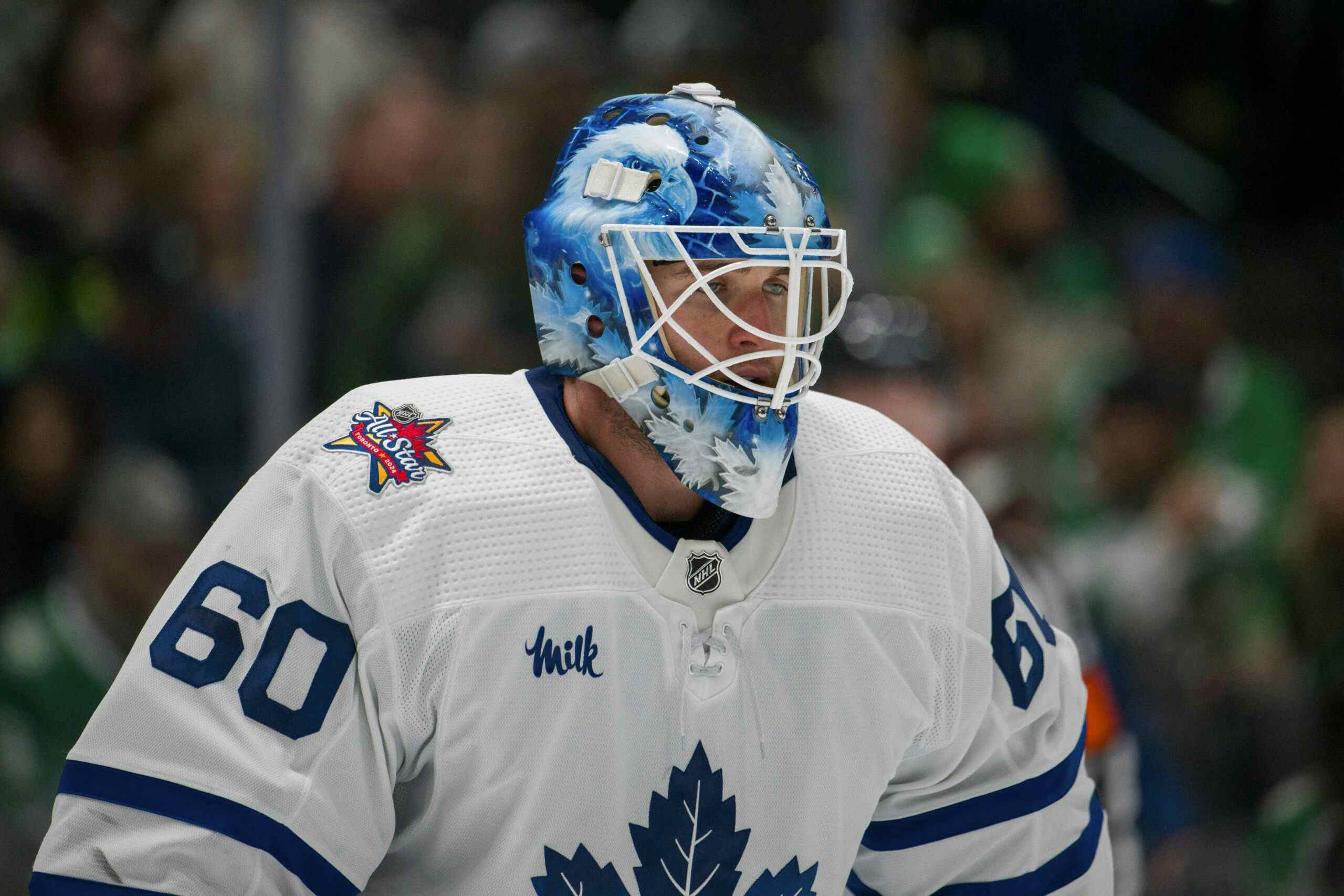Why You Don’t Trade Phil Kessel

Dave Feschuk put out an article in the Toronto Star today that caught my attention. His point is in no way ambiguous, being the direct headline; the Maple Leafs should trade Phil Kessel. In his eyes, "there’s never been a better time". It’s hard to call an opinion piece wrong, but you can make some judgements. My judgments are that his conclusions are poor, and that his basis is flawed. Let’s look through it.
If you’re any kind of fan, maybe you’ll never get over it. It was a little more than three weeks ago that the Toronto Maple Leafs were seconds away from ousting the Boston Bruins from the NHL playoffs. Now that the Bruins are a game removed from sweeping the Pittsburgh Penguins for a berth in the Stanley Cup final — well, it’s only natural to relive Toronto’s epic near-miss with a never-ending procession of what-ifs.
Right off the bat, Feschuk opens the piece to by playing to the readers emotions and opening their imagination. It’s a very effective strategy, and one that shows that he’s not a poor writer, just someone who will make poor statements over the course of the post. Reminding the undecided of the loss will automatically have them in a "I wish things were different" state of mind, allowing for easier agreement to change. Similarly, mentioning Boston’s success plants into one’s mind that a change will lead to strong dividends.
The issue with this? Phil Kessel was not a problem in the Boston series, finishing second on the Leafs in points, first in goals, and scoring two game winners (and with two minutes to go, looked to have three in his sights). As well, Boston’s success is situational. Much like we were shown anything can happen in the playoffs by those 7 games, you have no clue how Toronto would match up to the New York Rangers, and if they advanced, the Pittsburgh Penguins. The Leafs are not an identical team to Boston; their attempts to mimic them lead to an embarrassing Game 1 loss. They would have different approaches to both of those teams, and likely different results. Moving forward.
But if there’s no re-seizing a moment that’s been lost, MLSE CEO Tim Leiweke is bent on re-setting the standards of a once-proud NHL franchise.“We understand the only thing that matters here, for the greatest fan base in the history of the National Hockey League — and, by the way, the most important organization in the National Hockey League — is winning a Stanley Cup for Toronto,” Leiweke said in a video address to season-ticket holders this week.In the YouTube-posted message, Leiweke also offered an endorsement for the team’s current brain trust while uttering a four-word sentence that would make any NHL executive nervous, specifically: “I’m a hockey fan.”“I will bring more enthusiasm and more passion,” Leiweke said. “What you can be assured of is we’re going to work even harder.”
Leiweke’s statement doesn’t add anything to the Kessel argument. Much like the opening paragraph, it’s used as a device to get you into the frame of mine of commitment to victory, including the potential for change. The same statement that he made about the Raptors and Toronto FC. It’s also a way of reporting it’s existence, because really, it wasn’t significant enough for its own article. Not just in a newspaper, anywhere.
Somewhere, Leafs forward Phil Kessel is on a golf course saying: “Harder? That’s a joke, right?”
Feschuk begins to get to the point, with a reference to off-ice commitment issues that have largely been speculated with little to no merit. Over his time in Toronto, Kessel has steadily improved his conditioning, leading to longer shifts taken, more two way efforts, better play late in games, and more game-to-game consistency. These are all things that imply that Kessel has been committing to the athletic aspect of his game. In fact, the only publication that still seems to push the concept of Kessel not wanting to work to succeed is the Toronto Star, with Damien Cox being the last to question him.
And somewhere else, GM Dave Nonis and his management team are pounding the phones to bolster a flawed team in need of improvement in nearly every area. It’s exactly what they should be doing. With a little more than three weeks until the June 30 draft, now’s when off-season trade talks traditionally begin their slow build. As Leiweke has made clear, Nonis should talk a lot, since the status quo won’t cut it.
Dave Nonis means business, making every effort in sight to improve his team! In other words, he’s every NHL GM ever (with varying success, of course). But finally, we get to the meat.
But making big changes to the Toronto roster, with the NHL salary cap shrinking from around $70 million (all figures U.S.) to about $64 million, will require bold vision and savvy manoeuvring (sic) that many fans might consider sacrilege.
Here’s the thing about the Toronto Maple Leafs. Thanks to Brian Burke’s stubbornness about running a team under his concepts rather than the NHL rulebook, the Leafs are arguably in the best shape of any team in the league going into the cap crunch.
Other than the five years left on James van Riemsdyk’s contract (which looks like a bargain), there isn’t a single long term contract to worry about on the Leafs roster. Just three players on the team make more than 5 million dollars (Kessel, Grabovski, and Phaneuf). There are a couple of iffy contracts in Mike Komisarek and John-Michael Liles, but with two cap-compliance buyouts available, they aren’t an issue. In fact, those buyouts may not even be necessary – Komisarek’s contract is a year from expiry, and with length being the only issue on Liles’ deal, a team may give up something minimal to take him rather than one of the few available UFA defencemen.
This leaves the Leafs with 19 million dollars to spend this year (23 if they part ways with Liles). Yes, there are contracts that need to be resigned, but they will be hard pressed to hit that number. Up front, Nazem Kadri will likely be on a bridge contract simlar to Matt Duchene’s, Clarke MacArthur will likely walk, and I can’t see the team coming to terms with Tyler Bozak. This leaves Leo Komarov, Joe Colborne, Fraser McLaren, and Colton Orr, who will average out to approximately peanuts. On the back end, Carl Gunnarsson and Cody Franson will probably command about 3 million, leaving Mark Fraser, Ryan O’Byrne, and Mike Kostka, who if retained, will get replacement level salaries.
Really, the only crunch the Leafs have is if they want to pursue a big name, and it’s doubtful that there will be one this year, unless the league is blindsided by a buyout.
Example: There’d be no better time to trade Kessel, considering his excellent run of play as the league’s sixth-leading regular-season scorer has put his value at an all-time high. Don’t for a moment believe that Nonis, fresh off delivering a no-Leaf-is-untouchable post-season message, isn’t thinking hard about the possibility.
The issue with this is pretty simple. If the main focus is to try to win, trading away your team’s one true superstar talent as he enters prime age is counter-productive. Yes, it’s still possible, as the Leafs’ window of opportunity by age is beginning to open, rather than close, but it’s far too late and Kessel is far too young to trade this late into the rebuild timeline.
As well, "No-Leaf-is-untouchable" doesn’t mean that there is an active pursuit to get rid of every player. It just means that everybody has a price. As it stands, the price on Kessel should be an under-25 forward who produces at his level, or an under-27 forward who produces more. At this point, we’re in the Tavares, Malkin, Stamkos stratosphere, and such a move isn’t going to happen.
Why would Kessel be a smart chip to cash in? He’s a perimeter-hugging winger in a net-front league playing for a team that will need to give up something of value to land its long-sought No. 1 centre. He’ll also be an unrestricted free agent in the summer of 2014, as will team captain Dion Phaneuf.
Calling the NHL a net-front league is a gross over-simplification, but even if it wasn’t completely dynamic, you still need players along the perimeter to feed the net-front players. If that wasn’t true, Joffrey Lupul wouldn’t be playing the best hockey of his career with Kessel, nor would van Riemsdyk.
The "Leafs need a number one centre, so trade Kessel" argument is also a bad one. The primary answer to this? You’re getting rid of that number one centre’s biggest weapon in the process, leaving you chasing a winger that you already had. It becomes a Mats Sundin situation. The secondary answer? If this is a young team that’s willing to take risks for long term success, there’s a 22 year old on the roster who was more effective this year at even strength than Steven Stamkos, Nicklas Backstrom, Ryan Getzlaf, John Tavares, Henrik Sedin, Pavel Datsyuk.. okay, Nazem Kadri won’t be the best centre in the league not named Sidney Crosby, Eric Staal, or Jonathan Toews next year, but after a stellar full season, and with solid results alongside Kessel in brief experiments, is it not worth seeing if Toronto already has it’s first line centre before making drastic transactions?
Unrestricted free agency is an issue that can be dealt with as the time comes closer. As it stands, we’re talking about 13 months, to a player who is the go-to guy on a team he’s gone on the record as saying he loves playing with. Money will be a concern, but you’re kidding yourself if you think it’s possible to perpetually have your highest paid forward making 5.4 million and still be a star talent. Assuming the cap goes back to $70 million in 14/15, a salary of 6.6 million would take up the same percentage as Kessel did when he signed in 08/09. You know, when his just-completed 60 point season was 23 points ahead of his second best, not 22 behind his best. With $2M in buyouts coming off the books next off-season, it should be no issue at all to bring Kessel into the 7-7.5 Million range.
The latter, a lightning rod of post-season criticism thanks in part to his defensive paralysis in the crucial moments of that Game 7, would be by far the more palatable trade piece in the eyes of many supporters.
First off, Dion Phaneuf is not responsible for the Leafs’ failure, if anything, he’s a crucial part of the Leafs’ success. I don’t think anybody has an individual finger to point for what happened in Game 7, in part because there isn’t one, and in part because the people who blindly criticize players still have PTSD when thinking about Game 7. But that’s not the topic at hand.
But Phaneuf’s stock, weighed down by a hefty $6.5 million salary, is in the tank. Kessel’s, by contrast, is soaring. Given the local wont to buy high and bail low, it’d be a welcome change for a Toronto GM to recoup a decent haul on an investment as costly as Kessel.
Was the topic at hand not building championships teams? Suddenly, we’ve gone from "the CEO wants to build a winner" to "it’d be nice to see the Leafs show themselves to be good at asset management".
It’s not the only possible move, mind you, and Nonis has a shopping list that isn’t short. The dominant post-season work of Jonathan Quick and Tuukka Rask is a reminder the Leafs, who got credible if spotty work from No. 1 James Reimer this season, should be on the lookout for an upgrade between the pipes. Mike Smith is a free agent worth considering. Roberto Luongo will again be discussed. Tim Thomas’s comeback has got to start somewhere.
As we get further and further in, Feschuk’s points begin to get contradictory. He has concern over Kessel having an inevitable pay raise, but suggests that the Leafs should be looking to drop millions in upgrading beyond James Reimer?
As well, it’s hard to agree that these are upgrades at this stage of the game. Smith has one very impressive 2011/12 season under his belt, but in eight seasons, has been above 0.916 just the one time. Reimer has done so in two years of three, the off year being one where he struggled with concussions and still had a better season than many of Smith’s. I felt Luongo was an upgrade going into this year, but after Reimer drastically outplayed him this year, both regular season and playoffs, I’m not so sure I’d want to mess with that lengthy and bulky contract. Lastly, if Tim Thomas is going to come back, and wants to be on an upstart team that just broke into the playoffs and could use goaltending help, he may as well do it with the team that owns his rights.
The Leafs are also certain to be among the suitors of David Clarkson, the impending unrestricted free agent with the New Jersey Devils. That Clarkson is Toronto-born and media-savvy doesn’t matter as much that he plays the wing with a Bruins-worthy heaviness and has scored 30 goals in a season.
If by Bruins-worthy toughness, we mean "Nikolai Kulemin but also punches people", then yes, that’s what David Clarkson is. Yes, he’s scored 30 goals once, but comparing that to Kessel, who’s done that in four straight years (and was easily on pace to do that again this year), is crazy. Without Kessel, Clarkson is still the Leafs’ third or fourth option on the wing, and if he wants 4-5 million as speculated, that’s an obnoxious waste of money. Throw in that Kessel is a significantly more productive playmaker, and comparing the two is impractical.
But Clarkson is expected to command big dollars and the Leafs will have plenty of their own players looking for more, too, among them restricted free agents Nazem Kadri, Cody Franson, Leo Komarov and Carl Gunnarsson. Toronto centre Tyler Bozak, the best of the Leafs scheduled to hit the unrestricted open market this summer, can make a case he’s in line for a raise that would put him on par with the team’s highest-paid forward, the $5.5 million Mikhail Grabovski, but the Leafs will be looking for him to take a hometown discount. Giving every incumbent a pay bump might not jibe with the reality of a shrinking spending limit and other needs.
Addressed earlier. Clarkson is a sketchy investment of "big dollars", the RFA’s won’t be a major cause for concern, and any GM that pays Bozak close to 5.5 million dollars should probably be fired. Besides, if you’re getting rid of your best player to give your okay players raises, you have a massive problem with organizing your priorities.
Toronto, with a defensive corps that also needs help, needs more high-end talent at low prices, which is why moving up in a deep draft on June 30 would make sense, as would trolling the market to woo compliance buyout cases that could come relatively cheaply.
This is very confusing. Yes, the Leafs need to work on their defensive depth, but the issue there is definitely a short term one. With prospects like Morgan Rielly, Stuart Percy, and Jesse Blacker working their way up the chain, and the likes of Jake Gardiner still improving their game, trading up specifically to draft a defenceman is a very illogical move. Signing a short-term minute eater or two on July 1st with leftover money from this year’s RFA re-uppings helps the team more moving forward.
Change, for the Leafs, needs to be in the offing. Falling in love with a team that was a first-round out would be a mistake. The Leafs, by a lot of measures, weren’t a particularly good squad during the 48-game regular season. They were grossly outshot. They only secured their playoff spot a week from the schedule’s conclusion. Still, they made progress.
Ignoring the fact that pretty much the entire league only secured their playoff spots in the final week of the shortened season, I find it funny that the solution to getting grossly outshot is to get rid of the player who is by far the team’s best at getting pucks on net, whether they’re his own or his linemeates. The Leafs definitely weren’t a "good" team over the schedule; I along with many others have stated that they lucked out quite a bit and still have a ways to go before truly being competitive. But Kessel’s season wasn’t about luck. There was no shooting percentage spike, no freakishly unsustainable stats, normal or fancy. Just very, very good hockey from a very, very good player. You don’t fix a lucky team by leaving only the biggest examples and hoping that luck is a disease that they will perpetually rub off on each other. You put the consistent players on a pedestal. That’s not a term that could be used to describe Kessel when he first came here, but over the past two calendar years, he’s become that guy.
“I think what we’ve done is we’ve provided … an identity for our team,” coach Randy Carlyle said during the playoffs. “I think, in some ways, we’ve proven if we work hard, with the skill that we have and the commitment to playing as a team, that we can be competitive.”Actually, the coach might want to revise that manifesto given the CEO’s latest mission statement. Working hard and being competitive is suddenly not enough. Bizarre, historic first-round choke jobs are presumably also not acceptable. ’Tis the off-season for working harder and assembling champions. Consider the proverbial bar raised along with the expectations of Leafs Nation.
Feschuk finishes the article by playing with the readers emotions again, which as stated before, is an effective practice and probably wins over a lot of people. But in the end, he’s still asking for the Leafs to trade their best, most consistant player for all the wrong reasons. It’s an easy talking point; I get that. It sells papers, and that’s his job; I also get that. It still doesn’t change the fact that almost no point he tried to put across makes any feasible sense for the Toronto Maple Leafs.
At the end of the day, the suggestion can be boiled down to this: The Leafs want to win, so they should trade their one superstar for either a centre who will need someone like him on his wing (instead of trying an already owned option), or a defenceman who will need several years to develop into what the Leafs need. But, this can’t come at a steep cost, because the most appropriate use of the Leafs cap dollars is on players in between star level and replacement level, pretty good but not great. The Leafs need to work hard, and this player was considered to not be a hard worker four years ago. By the way, this is all because of two minutes in a series that he was probably the team’s best player in, despite all the expectation that he wouldn’t.
When you put it that way, it sounds like a bunch of nonsense. Because it is.
Photo from Zimbio.com
Recent articles from Jeff Veillette

